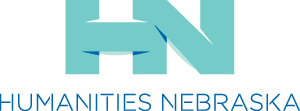The Archive and the Community
Description of the Collection
The items in the Nebraska Stories of Humanity portal are a collection of personal artifacts from the families of the highlighted individuals, but also other items sought from disparate archives. In addition, our stakeholders, such as the Nebraska Jewish Historical Society and History Nebraska, have partnered with us to include digitized materials that reside permanently in their safekeeping. The intent is to establish a collection that provides windows of insight and opportunity for research while discovering new information in the cross-section of materials.
The Ethics of Nebraska Stories
Cautious strategizing for this educational digital portal is exercised to ensure that it does not become another example of popular technoculture (Kahn 2010), but provides unique, informative characteristics to enhance knowledge. The site should be a tool that affords a cultural understanding of the historical data and Holocaust memory. The user should engage with the site as a tool that equitably provides sustainable and dialectical interaction. Rothberg (2009) contends we must consider “how to think about the relationship between different social groups’ histories of victimization” (2) to avoid making comparisons or asserting competing suffering. Further, he considers how his concept of multidirectional memory can unite cultures bearing tragic histories in a “productive, intercultural dynamic” manner (3), rather than divide them. We strive not to alter historical content from its context when curating the portal’s archival and gathered data (Parks et al. 2015). The components of this framework are complex, given the personal nature of materials collected and shared.
Conditions of Use
Nebraska Stories of Humanity as a whole, as well as the texts, images, and other items contained in it, is protected under the copyright laws of the United States and the Universal Copyright Convention and licensed under a Creative Commons Attribution-NonCommercial-ShareAlike 3.0 Unported (CC BY-NC-SA 3.0) License.
Non-commercial Use
Users are allowed to distribute and adapt our work, so long as they credit Nebraska Stories of Humanity, make their work available non-commercially, and distribute their work under the same terms.
Commercial Use
Commercial use of materials in this portal is not allowed.
Permitted Uses of the Content
Nebraska Stories of Humanity does not own the rights to many of the items displayed, but instead received nonexclusive permission from the rights holders (either individual families or archival institutions). Individual items obtained from individuals or partner institutions may be used at the discretion of the rights holders. Those wishing to use these items must obtain the proper permissions from the relevant rights-holding institution as identified in the metadata section of each item.
Partner rights-holding institutions include, but are not limited to:
- Nebraska Jewish Historical Society
- History Nebraska
Comments or questions about the site should be directed to cdrh [at] unl.edu
Citations
To identify Nebraska Stories of Humanity as the source of information that you are using in a paper, article, book, blog post, slide show, or other print or electronic communication medium, please include the complete title of the item, the name of the site, its URL, and the date you accessed it. Here are some examples:
APA: Nebraska Stories of Humanity. Retrieved April 21, 2022 from https://nestoriesofhumanity.unl.edu
Chicago/Turabian: Nebraska Stories of Humanity. https://nestoriesofhumanity.unl.edu (retrieved April 21, 2022).
MLA: Nebraska Stories of Humanity. 21 April 2022. https://nestoriesofhumanity.unl.edu
To cite a specific item:
APA: Nebraska Stories of Humanity. “Letter from Clarence Williams to Gretchen Williams, April 30, 1945.” Retrieved April 21, 2022 from https://nestoriesofhumanity.unl.edu/item/soh.sto002.00093.html
Chicago/Turabian: Nebraska Stories of Humanity. “Letter from Clarence Williams to Gretchen Williams, April 30, 1945.” https://nestoriesofhumanity.unl.edu/item/soh.sto002.00093.html (retrieved April 21, 2022).
MLA: Nebraska Stories of Humanity. “Letter from Clarence Williams to Gretchen Williams, April 30, 1945.” 21 April 2022. https://nestoriesofhumanity.unl.edu/item/soh.sto002.00093.html
Resources
Kahn, Richard. "Chapter Three: The Technopolitics of Paulo Freire and Ivan Illich: For a Collaborative Ecopedagogy." Counterpoints 359, 81–101. 2010.
Rothberg, Michael. "WEB DuBois in Warsaw: Holocaust Memory and the Color Line, 1949-1952," The Yale Journal of Criticism 14, no. 1 (Spring 2001): 169–189.
Svensson, Patrik, and David Theo Goldberg. Between Humanities and the Digital. Cambridge: MIT Press, 2015.






